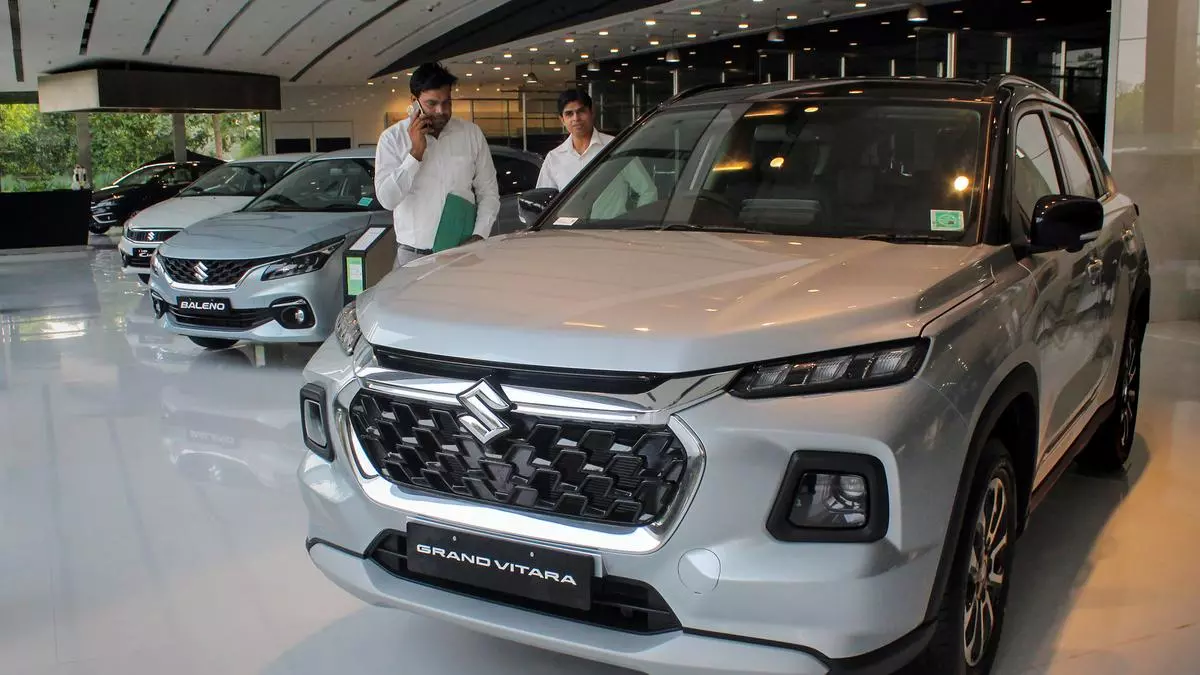
Marginal impact on fuel efficiency of 4-wheelers due to E20
During the last ten years till ethanol supply year (ESY) 2023-24 (November-October), ethanol blending in petrol by PSU OMCs resulted in savings of more than ₹1.13 lakh crore of foreign exchange
Using 20 per cent ethanol blended petrol (E20) marginally impacts fuel efficiency of four-wheelers that are designed for E10 fuel and can be calibrated for E20, which can be reduced with minor tuning.
Minister of State for Petroleum & Natural Gas Suresh Gopi told Rajya Sabha on Monday that the Roadmap for Ethanol Blending in India 2024-25, prepared by an inter-ministerial committee, said that using E20 results in “marginal reduction in fuel efficiency” for four-wheelers designed for E10 and calibrated for E20.
“Society of Indian Automobile Manufacturers (SIAM) had informed the committee that with modifications in engine hardware and tuning, the efficiency loss due to blended fuel can be reduced.
The Roadmap for Ethanol Blending in India 2020-25 has not identified any negative impact on engine health due to blending of ethanol in petrol up to E20,” he added.
An industry source said that vehicles conforming to BS-VI emission norms, being manufactured in India since April 2023, are compliant with E20 fuel.
In old two-wheelers and passenger vehicles, E20 may lead to corrosion in fuel pipes.
However, some original equipment manufacturers (OEMs) are working on it by retrofitting the fuel pipes and replacing the older ones.
During the last ten years till ethanol supply year (ESY) 2023-24 (November-October), ethanol blending in petrol by PSU Oil Marketing Companies (OMCs) resulted in savings of more than ₹1.13 lakh crore of foreign exchange.
It also led to crude oil substitution of about 1.92 lakh tonnes and CO2 emission reduction of around 578 lakh metric tonnes.
Savings on account of ethanol blended petrol (EBP) programme are in respect of foreign exchange conserved.
EBP programme has also supported expeditious payment to farmers, the Minister noted.
Last month, Gopi informed the Upper House that the Roadmap for Ethanol Blending in India 2020-25 projects that a successful E20 programme can save about $4 billion per annum.
Setting up of dedicated ethanol plants in ethanol deficit states has made ethanol available closer to the petrol consumption centre leading to optimisation in transportation.
Distilleries and PSU OMCs have been directed to create sufficient ethanol storage capacities, he added.
“Further, OMCs have signed long-term offtake agreements with 232 ethanol plants for an annual off-take of 791.6 crore liters, expanded storage capacity for higher blending percentages, and started transporting ethanol-blended petrol through rail to deficit regions to ensure the smooth roll-out of the E20 programme,” the Minister said.
Comments
